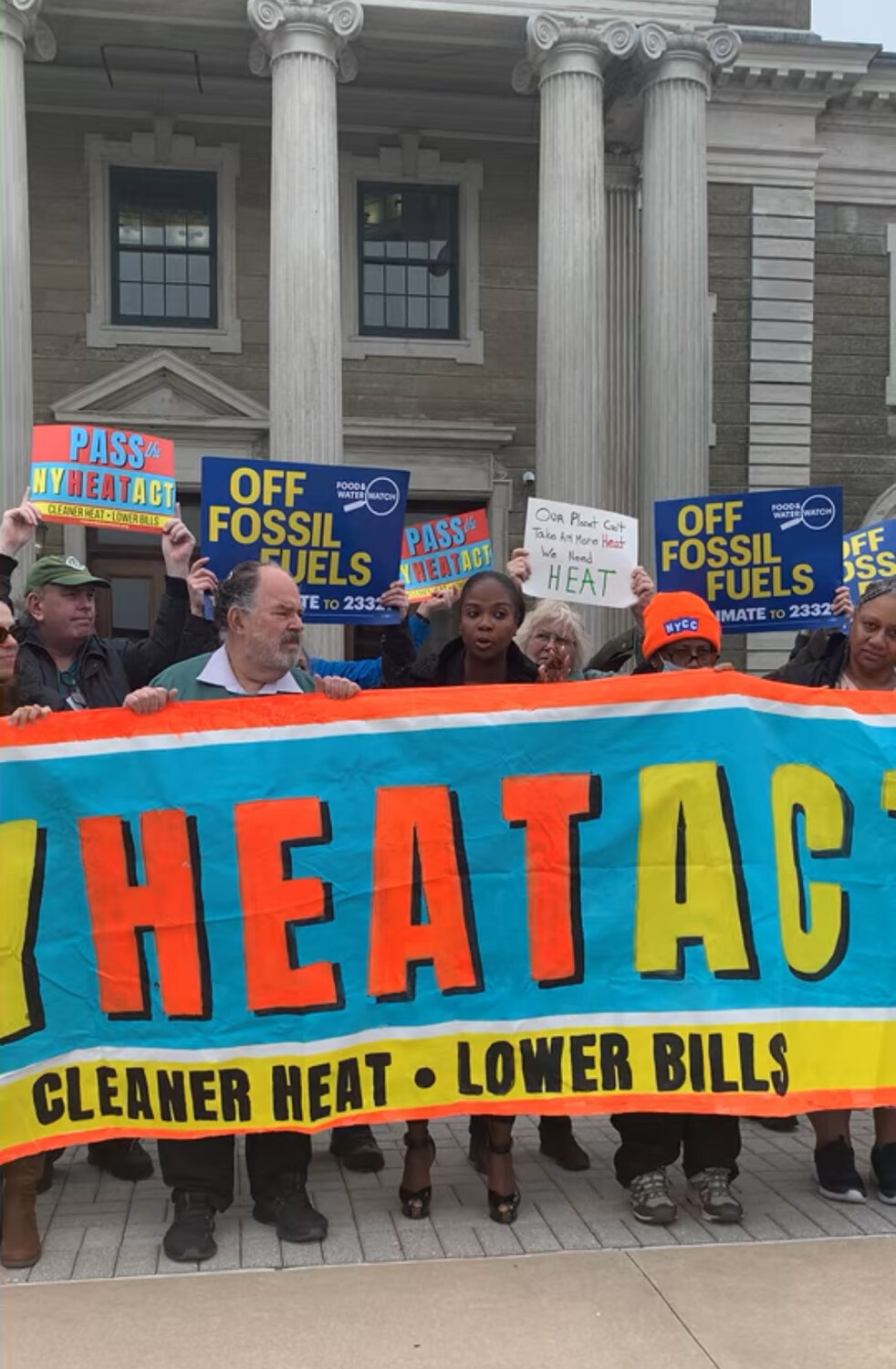NY HEAT Act and Climate Superfund excluded from state budget
Residents upset over what they see as state’s climate hypocrisy
As Earth Day came and went this week, some residents — and their representatives — expressed disappointment in what they see as the state’s failure to follow through on its pledge to limit the impacts of climate change.
Last week, the state unveiled and passed its $237 billion budget for fiscal year 2025, which many observers criticized its lack of investment in ways to address the ongoing environmental crisis. Two significant pieces of legislation — the New York Home Energy Affordable Transition, or HEAT, Act, and the Climate Change Superfund Act — were notably absent from the spending plan.
The HEAT Act aimed to limit the expansion of gas infrastructure by requiring utilities to explore alternative energy options before providing gas to new customers. Similarly, the Climate Change Superfund Act sought to hold companies accountable for their contributions to greenhouse gas emissions by requiring them to fund infrastructure upgrades to mitigate their environmental impact.
But despite Gov. Kathy Hochul’s advocacy of these initiatives, they did not appear in the final budget agreement.
“As we celebrate Earth Day, it is terribly disappointing that the HEAT Act was not included in the budget,” Assemblywoman Taylor Darling, who represents Uniondale and co-sponsored the bill, said.
Taylor, who is running for the State Senate in the fall, added that the absence of the measures from the budget “emphasizes the urgent need” for her to work collaboratively with her colleagues in order to quickly “enact legislation that will protect our planet from further destruction,” the next step in addressing the ongoing climate crisis.
“Our commitment to environmental stewardship must be unwavering,” she said “so together we can ensure a sustainable future for generations to come.”
But the impacts of the exclusion of the two initiatives will go far beyond disappointment for residents.
“Our families are struggling,” Darling said at a rally calling for the HEAT Act’s inclusion in the budget last month. “People cannot afford to pay their bills, they cannot afford housing, they cannot afford food, and yet our utility bills, somehow, continue to rise every single month.”
According to a report by New York Renews — a coalition of over 370 environmental, justice, faith, labor and community groups advocating for the reform of climate law — nearly one in four Long Islanders, or 23 percent, have a “high energy burden,” meaning they spend more than 6 percent of their annual income on energy bills.
And now, with the Long Island Power Authority’s approved 11.6 percent rate hike this year, the average customer’s electricty bill is now almost $200 a month — the fourth-highest in the nation, with seemingly no solution around the corner for overburdened residents.
Experts from WIN Climate, an organization of data scientists, economists and energy modelers that collaborated with New York Renews on its report, said that the HEAT Act — which included a provision that limits the charges for utilities to a maximum of 6 percent of a household’s annual income — would have cut many Long Island residents’ energy bills nearly in half, helping them save an average of $164 per month.
“An extra $164 in my pocket could’ve gone a long way,” said Peggy Perkins, of Hempstead, who said she works several jobs in order to make ends meet. “There are times I have to use the stove in the kitchen to heat up the house because we can’t afford the heat bill. There are times I have to choose between feeding my kids or paying some high bill, and that ain’t right.”






